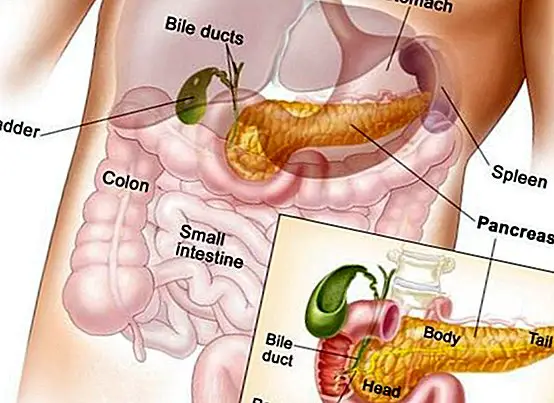The dangerous abdominal obesity and its effects on health
According to many studies, abdominal obesity is one of the most relevant factors of the table called as Metabolic syndrome, which is especially characterized by the presence of other serious health problems: high cholesterol, glucose intolerance, high blood pressure, and high triglycerides, among other aspects.
Not in vain, the so-called as intra-abdominal adiposity is much more dangerous than the "love handles" themselves, because it increases the risk of suffering type 2 diabetes or heart disease.
And is that according to experts, excess abdominal fat is the genesis of metabolic risk, since in many cases, you first suffer from obesity and you are fat, but then the diabetes.
But, in addition, if we take into account that obesity itself is related as we have indicated with other problems, such as heart failure, stroke or even sudden death, the problem is even more serious and greater.
In these cases, the waist circumference It can be a faithful indicator of the risk of suffering from type 2 diabetes and heart disease, and according to recent studies, abdominal fat may have a certain relationship with the appearance of colon cancer in men.

What is abdominal obesity and why is it so dangerous?
Believe it or not, the risk of obesity depends more on where the fat is located. That is, although obesity is always dangerous, especially when that excess weight is maintained over time and is not lowered, depending on where it accumulates will affect to a greater or lesser extent our health, especially as regards heart health it means.
Basically, we could define abdominal obesity as that obesity produced by the accumulated fat in the abdomen. For this reason it is also known as the central obesity or Android obesity. And we must differentiate it from the type of obesity that accumulates especially in the area of the arms, buttocks and thighs, and known as gynoid or peripheral obesity.
It has been shown that Abdominal obesity is more dangerous and has worse consequences for the metabolism. Why? Fundamentally because it tends to favor the development of gout (accumulation of uric acid crystals in the joints), and diabetes, one of the most serious diseases.
Cardiovascular diseases can arise, since fat tends to accumulate in other vital organs too. And, in addition, tends to favor the development of hypertension, much more common in people with abdominal obesity or android, compared with the gynoid or peripheral.

Can abdominal or central obesity be prevented?
Many experts advise the practice of physical exercise on a regular basis and the maintenance of a balanced and cardio-healthy diet as the best way to prevent this type of obesity.
In fact, when a person has abdominal obesity, many nutritionists advise the follow-up of a low-fat diet that helps protect and care for heart health. And to the regular practice of exercise.
Regarding the practice of physical exercise, it is best to practice it regularly every day, with an average duration of between 30 to 45 minutes. In addition, aerobic exercise is recommended, the best when losing fat.
How much should the perimeter of the waist measure?
Although some experts believe that the Measurement of the perimeter of the waist It may be rather outdated, the truth is that today continues to be useful to discover if a particular person may or may not have a waist circumference greater than recommended.
In any case, if we stick to the classical measures in this regard, many nutritionists indicate that it should not exceed the following measures:
- Perimeter of the waist in women:In the case of women, 88 centimeters.
- Perimeter of the waist in man:For men it is not advisable to exceed 102 centimeters.
You can also measure the corpulence by calculating the Body Mass Index, which should not exceed 25. If you wish, we offer you a free calculator of IMC, so you know how much your Body Mass Index is located. This article is published for informational purposes only. You can not and should not replace the consultation with a Nutritionist. We advise you to consult your trusted Nutritionist. ThemesObesity


